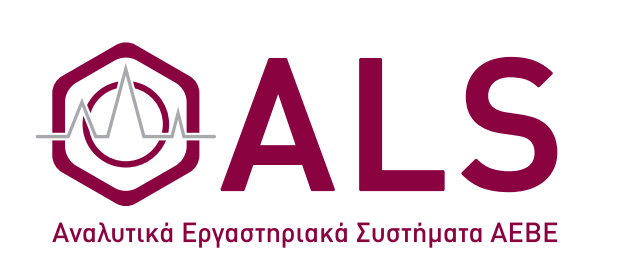Stanhope-Seta designs and produces petroleum testing equipment and quality assurance instruments that are used in measuring the physical characteristics that define the quality and compatibility of the product.

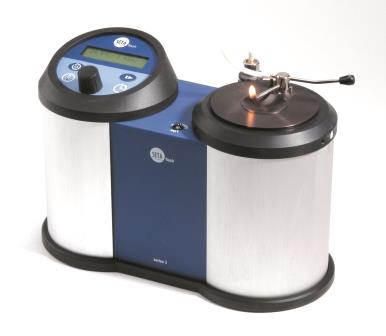
Flash Point Tester
The Setaflash Series 3 is an easy to use instrument that can complete a flash/no-flash test in less than two minutes and in many cases in 60 seconds, or determine the flash point of a sample within a temperature range of 0°C to 300°C.
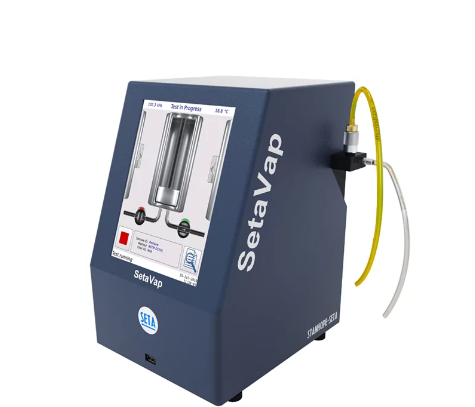
Automatic Vapour Pressure Analyser
SetaVap4 provides reliable, precise and fully automated vapour pressure analysis.
• Integrated shaker
• Simple operation
• Minimal bias
• Robust and compact design
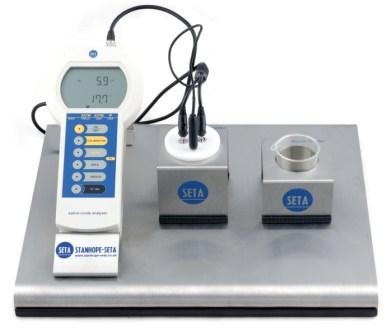
Salt in Crude Analyser
The Seta Salt-in-Crude Analyser is a robust and portable instrument for determining the chloride (salt) content of crude oils in full conformity to ASTM D3230, IP 265 and equivalent test methods.
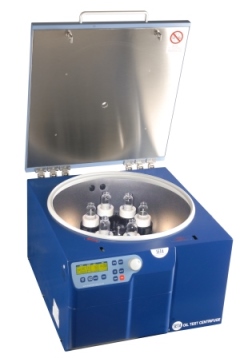
Oil Test Centrifuge
Six place swing out rotor and universal bucket assembly accommodates low cost adaptors and cushions suitable for borosilicate glass centrifuge tubes of the types specified for oil testing: 6 or 8 inch conical, 8 inch trace sediment, 8 inch pear-shaped or 12.5ml.
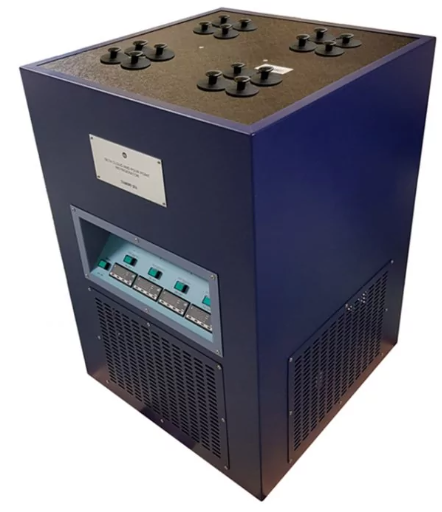
Cloud and Pour Point Cryostat
The Seta Cloud and Pour Point Cryostat has Four 2 litre compartments which are independently temperature controlled and can accommodate four Air Wells. Three compartments have a temperature range of ambient to -35°C and one has a low temperature compartment -35 to -51°C.
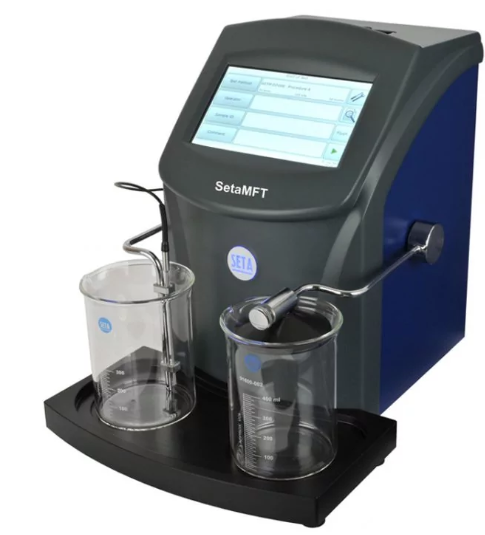
Multi Filtration Tester (MFT)
The Multi Filtration Tester (MFT) fully conforms to the latest ‘cold soak’ filterability test requirements for FAME and bio diesel. It is a unique and versatile instrument designed to test the Filter Blocking Tendency (FBT) of diesel, biodiesel (B100 & B5/7/20/30), gas oil, gas turbine fuel and kerosene. Test parameters for IP 387 and ASTM D2068 are pre-programmed.

Cold Filter Blocking Tendency
The Seta CFBT is a small scale laboratory analyser which measures the Cold Filter Blocking Tendency (CFBT) of diesel and gas oils. The CFBT predicts how diesel fuel may behave at low ambient temperatures by replicating vehicle/engine field cold conditions and testing the fuel’s filter tendency.
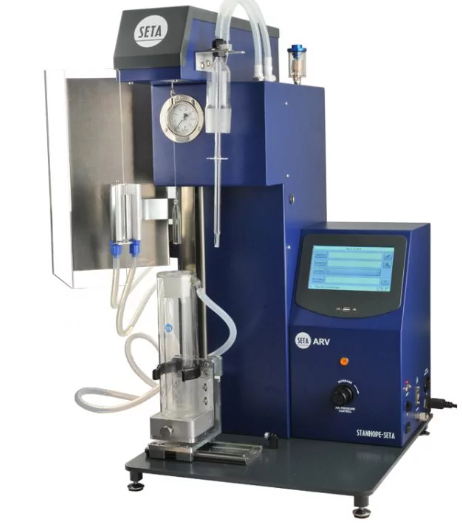
Air Release Value Apparatus
The Seta Air Release Value System is designed to determine the air release properties of hydrocarbon based oils in accordance with ASTM, IP and other methods.
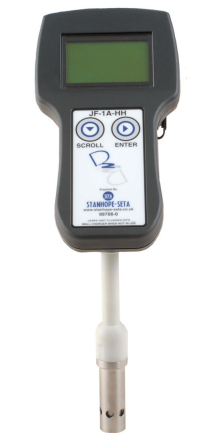
JF-1A-HH Hand Held Conductivity Meter
The Seta Hand Held Conductivity Meter (D2 JF-1A-HH model) meets the requirements of ASTM D2624. It provides an accurate and rapid conductivity measurement of distillate fuels; and is specifically designed for testing low conductivity fluids such as aviation kerosene. The analyser can measure fuel electrical conductivities between 0 and 2000 picosiemens/meter (pS/M).
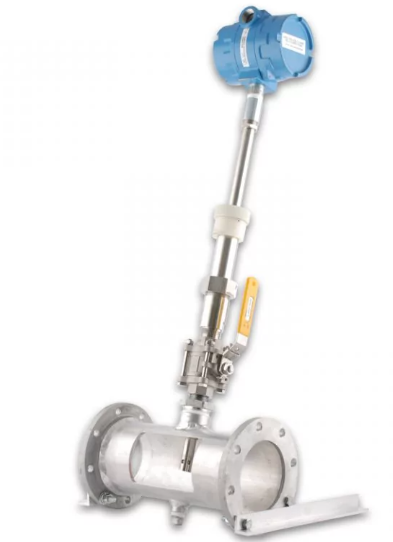
JF-1A In-Line Conductivity Sensor
An inline system that provides real time measurement of conductivity in pipelines using high accuracy AC measurement technology according to ASTM D2624. Conductivity range 0 to 2000 pS/m.
Particle Counters
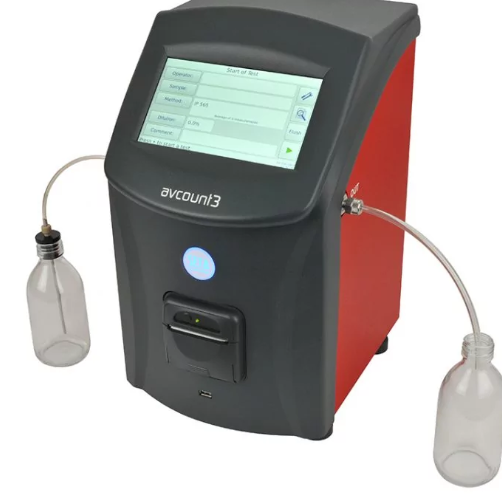
Light Extinction (Seta AvCount3, AvCount Lite)
The AvCount Lite particle counter provides reliable results for determining the particle concentration in liquid fuels and oils, including aviation fuel cleanliness to Defence Standard 91-91.
The AvCount3 portable particle counter determines the particle distribution in a liquid sample, whether checking the quality of fuel, filter systems or in service lubricants.
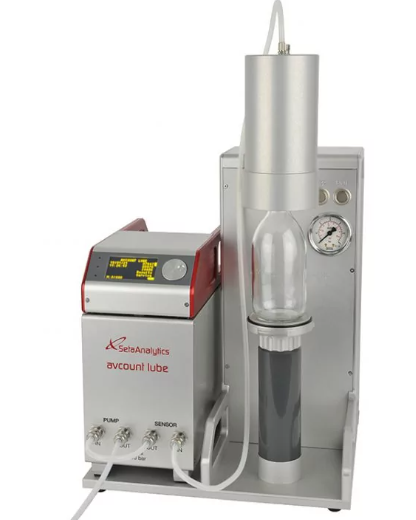
Seta AvCount Lube Pressurized Light Extinction Particle Counter
The AvCount Lube particle counter determines particle concentration in oils with a viscosity up to 200 mm2/s. FFKM seals have been fitted to resist aggressive oils.
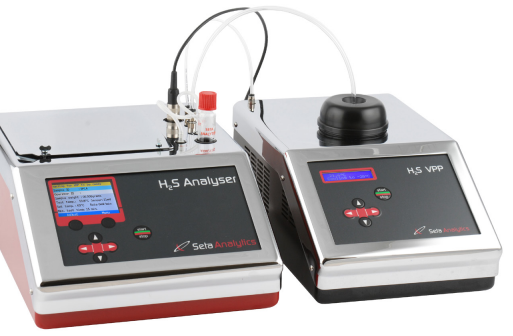
IP 570 ‘Determination of Hydrogen Sulfide in Fuel Oil – Rapid Liquid Phase Extraction Method’
The H2S Analyser was originally developed in cooperation with Lloyd’s Register’s ‘Fuel Oil and Bunker Analysis Service’ (FOBAS) along with support of other major international oil companies to offer rapid measurement of H2S in liquid petroleum products.
The H2S Analyser is an excellent tool for supporting Quality Control and safety ensuring product is within approved specification. Rapid repeat sample measurement means it can also be used to assist product remediation treatment of feedstocks and off specification product.
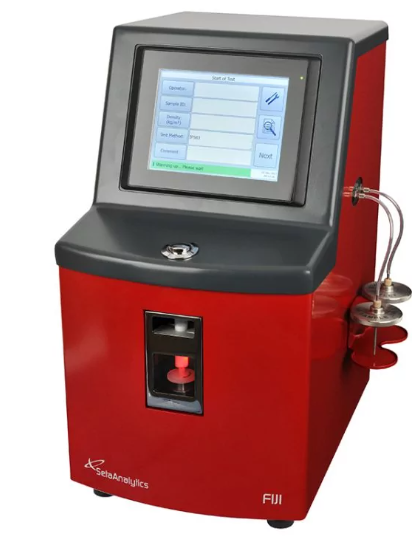
Determination of the fatty acid methyl esters (FAME)
The patented Fame In Jet Instrument (FIJI) has been developed to offer the industry a rapid and easy check on Parts Per Million (ppm or mg/kg) levels of FAME in Aviation fuel using test method IP 583.
FIJI uniquely utilises state of the art FTIR (Fourier Transform Infra-Red Spectroscopy) technology and a patented sample preparation system which allows FAME detection accuracy down to the 10mg/kg level.
FIJI can be used as a field or lab based screening tool to give a quick indication of possible FAME contamination that may then necessitate further investigations. The instrument can be used to prevent expensive testing and avoid costly delays of fuel release.
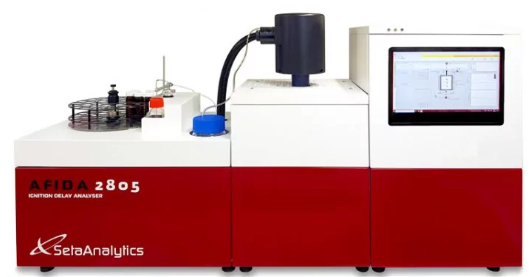
AFIDA Generic Cetane Number Analysis
AFIDA is a revolutionary development providing fully automated determination of the Generic Cetane Number (G-CN) of diesel and diesel related fuels using test method IP 617.
The analyser uses a constant volume combustion chamber (CVCC) and incorporates a unique and patented high pressure injection system that generates fine fuel droplets similar to modern common rail injectors in most diesel engines.
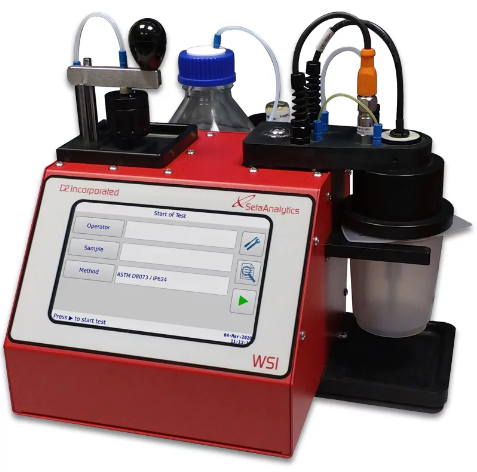
WSI Analyser
The WSI is used in the aviation sector to provide an indication of the presence of surfactants in aviation fuel. Surfactants, or surface active agents, are not normally present in aviation fuel, but can be picked up during transportation in pipelines, ships or storage, or through misadditization. Surfactants in the fuel affect the ability of filters in the distribution network to remove entrained water through coalescence.
